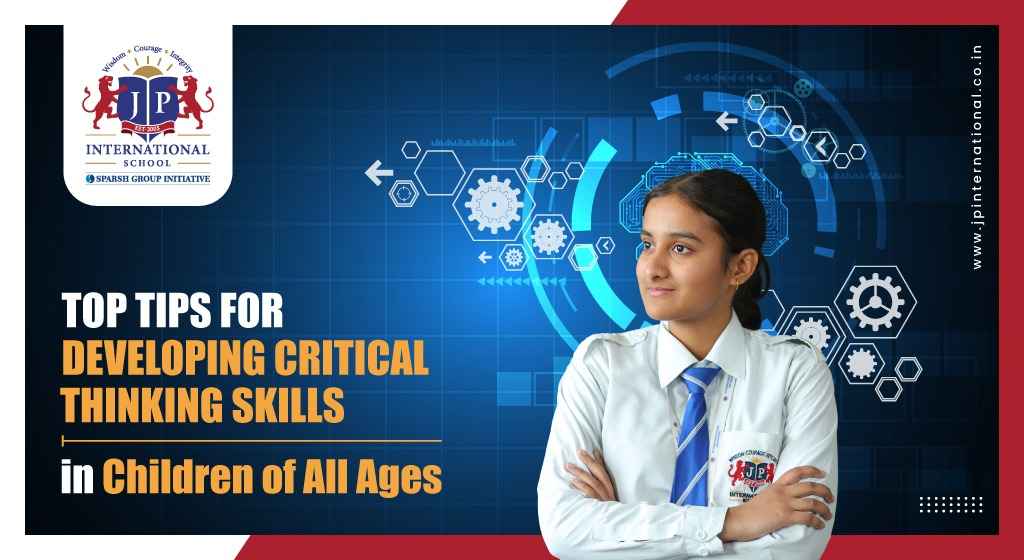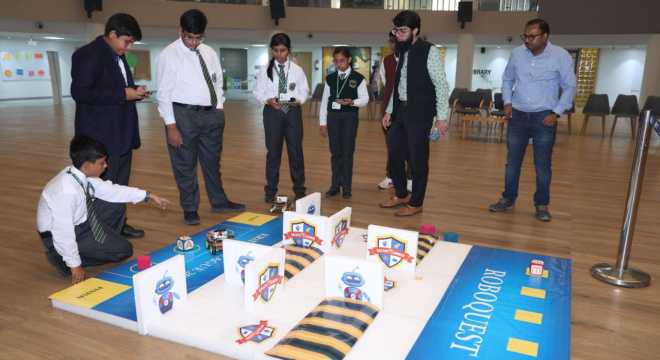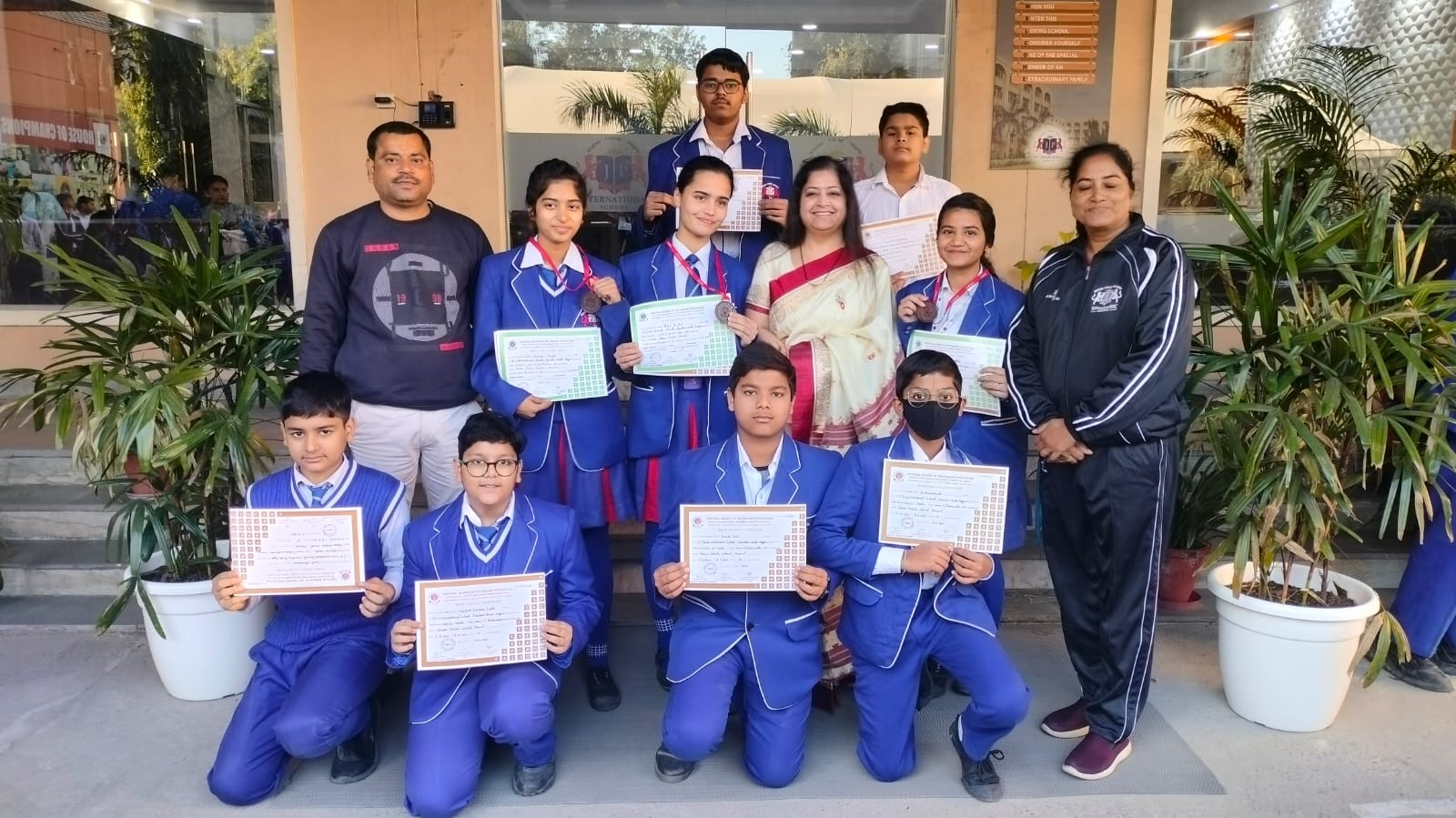

T:+91 7669-933-404
Email: [email protected]
Plot 3A, Sector Omega 1, Near Pari Chowk, Greater Noida, GB Nagar, Pin Code 201308


T:+91 7669-933-404
Email: [email protected]
Plot 3A, Sector Omega 1, Near Pari Chowk, Greater Noida, GB Nagar, Pin Code 201308

Critical thinking goes beyond memorisation, encouraging students to connect the dots between concepts, solve problems, think creatively and apply knowledge in new ways. Despite myths that critical thinking skills are only applicable to subjects like science and maths, the reality is that these skills—which are based on the evaluation and application of knowledge—are not only vital for success in all subject areas, but everyday life as well. Critical reasoning has of late become an indispensable part of elementary education. Here’s how you can help children improve their critical reasoning powers.

Children are naturally curious and this curiosity is the foundation of critical thinking. Parents and educators must nurture this trait by encouraging children to ask questions about the world around them. Responding to their queries with patience and engaging in discussions foster their ability to analyse situations and seek answers independently.
Encourage questions like “Why?”, “What if?” and “How?”
Provide books, videos and other resources to explore their interests further.
When children see their curiosity as valuable, they are more likely to investigate and develop analytical skills.
Rather than providing solutions to every challenge, give children opportunities to solve problems on their own. Open-ended tasks can inspire them to brainstorm and evaluate different approaches. For example:
Ask them how they would build a bridge using household items.
Present a real-world challenge, such as how to reduce food waste at home.
Such activities encourage logical reasoning and creativity, helping children to think critically about their decisions and actions.
Critical thinking doesn't have to be confined to the classroom. Everyday activities offer ample opportunities for developing these skills.
Cooking: Have children follow a recipe, try different combinations of ingredients to understand cause-effect relationships.
Games: Engage in strategy-based games like chess or puzzles that challenge their reasoning abilities.
Storytelling: Ask children to predict what might happen next in a story or create an alternate ending.
These informal experiences are fun and effective in strengthening analytical thinking skills.
It is worth recognising that children learn from observing what adults are doing. When parents and educators begin to model critical thinking themselves, they can explain their thought processes while teaching. For instance, when buying products, explain to children why the particular brand is better than another one because of the price-quantity ratio, or because the company is environmentally friendly. It also helps children in making decisions and ensures that children appreciate the value of decision making.
On the same note, adults can offer children a chance to be part of their decision-making processes and engage in reasoning exercises involving problem solving.
Reflection helps children evaluate their own actions and decisions. After completing a task or resolving a conflict, ask questions like:
“What worked well?”
“What could have been done differently?”
“Why do you think that happened?”
This habit of self-assessment promotes deeper thinking and enhances children’s ability to consider multiple perspectives in future situations.
From our everyday activities and interactions with other people, children can expand their practical skills in critical thinking with regards to other cultures, beliefs and attitudes. Read together books, watch documentaries or conduct discussions on certain topics concerning the world. Debate can be useful in enhancing the ability of children in expressing their own ideas and in analysing arguments that are contrary to theirs. Explain current events in a manner that is suitable for children while sparking their critical thinking abilities. It also assists them in having an open mind and the capacity to analyse multiple options in a fair manner.
Web-based applications present learners with varied approaches to develop new skills. There are many applications or programs, such as BrainPOP, Duolingo or strategic games to learn thinking logically. However, the use of these technologies should be kept moderate and serve as a supplement to physical classrooms and practical work.
Training children to be critical thinkers is a noble duty that empowers children in all aspects of their lives. Curiosity, problem solving and critical thinking makes learning fun and through involving children of all ages in these activities, parents and educators can prepare them for the challenges of the future.
At JP International School, the learning environment enables critical thinking and problem-solving skills. The school prepares students for real-life situations from early on in life, thus helping them cope well in today’s dynamic environment.
Parents can foster critical thinking at home by encouraging curiosity, use open-ended tasks and integrate activities in everyday life and by storytelling to develop analytical skills.
- JP International School29 March 2025
Technology allows students' everyday journey, be it in academics or outside of academics, to be t...
22 March 2025
STEM education prepares students for healthcare careers by combining biology, chemistry and physi...
15 March 2025
By embracing innovative EdTech solutions while preserving valuable aspects of traditional educati...
8 March 2025
This journey becomes more enriched when parents too take an active lead in their children’s aca...
28 February 2025
These are essential 21st century skills which students must be trained in to succeed in a world w...
 28 November 2024
28 November 2024
.jpg) 27 November 2024
27 November 2024
 8 December 2022
8 December 2022
